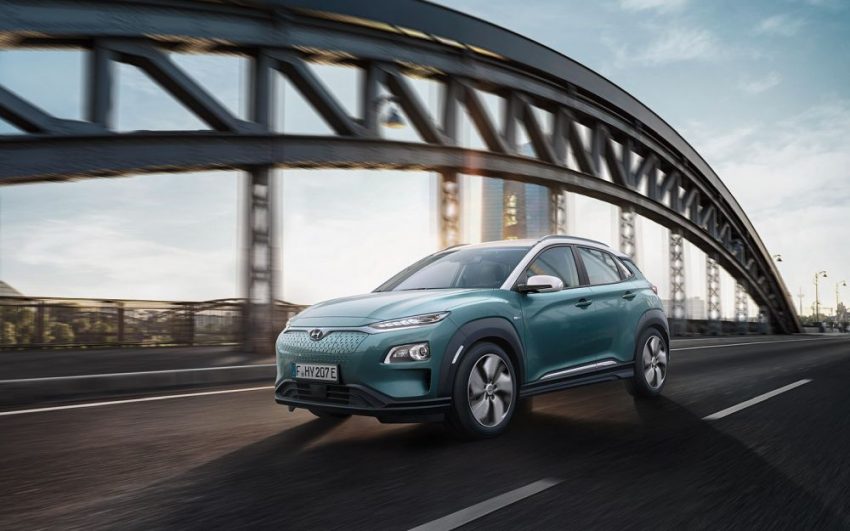
17.3.2020. Kona Hyundai Motor at the beginning of March the production of electricity Nosovice, Czech have been included in the plant.
The first cars already (HMMC) European manufacturing plant, Hyundai Motor Manufacturing Czech for customers in Europe left and is on the way.
In nosovice, Kona is made more powerful version of the electric two electric. Hyundai’s compact SUV first all-electric vehicle, are produced in the Czech Republic. Approximately 64 kWh electric motor and equipped with a 150 kW battery capacity kWh/100 km Kona electricity (electricity consumption, g/km combined by 14.7; CO2 emissions: 0 to 35 km compared to the previous model 484 may be combined with increasing the range to Miles:).
Fast-growing demand for electricity in Kona was faster
Nosovice plant in Europe is one of the largest and most modern production facilities for automobiles. Kona Electric approximately 30 thousand units by 2020 from the group to run. A full year, even more than 35 thousand. Together, Ulsan Hyundai in South Korea increased production at the plant has more than tripled, compared to the previous year, and thus will increase the availability of the electric vehicle, delivery times are shortened significantly.
Kona to a new level thanks to a significant increase in electricity production in Germany thus, the lift and electric mobility in Europe. Czech production with additional units, can satisfy the growing demand of electricity in Germany and Europe fast faster than Kona.“
Jürgen Keller
General Manager Of Hyundai Motor Germany
Sustainability, with shorter delivery routes
The basement is also much shorter delivery promise can be met is pleased that sustainable production and delivery:
“Reduced delivery way to save time, reduce CO2 emissions, but to an extreme degree. At the same time, as a place of business in Europe also will be strengthened.“
Jürgen Keller
General Manager Of Hyundai Motor Germany
Kona electric production line for production Changes, production setup and installed a completely new electric battery level was performed. New Kona electric roof, two color can be dyed in addition, because Hyundai’s paint shop, a new system was introduced.
Also, Kona electric batteries can be significantly reduced, whereby the distance to the place of production is done in Europe. The batteries are initially brought to a warehouse and the production line automatically controlled vehicle needs a new HMMC is stored. Electric SUV a total of 150 units a day.
Hyundai is rising to become the largest provider of zero emission vehicles in Europe
Waiting for Hyundai this year, more than 80,000 units of vehicles for European customers the solution offers. Kona electric, Ioniq, Electric, in addition to the number of Nexus fuel cell vehicle. Hyundai’s zero-emission vehicle in Europe, the largest provider of this upgrade.
About Kona Electric
Kona Electric high range and stylish design, paired with powerful electric drive with greater expectations in Europe and is very successful. Since the launch of compact SUV has won numerous awards. With the model 2020, Kona has received many upgrades which make electric vehicles more attractive than electric. Hyundai telematics for extra comfort on board, 10.25-inch touch screen with Bluelink and service through the application driver and vehicle optional navigation system is connected to the network. 64 series standard capacity battery Kona kWh electric-kW on-board Charger is included as a 11.
Kona Electric 150 kW in the version 41.850 Euro. The advantage of a major purchase, there’s the environmental bonus. Kona Hyundai Electric Hyundai Electric BAFA Germany on environmental income for government receiving the bonus 5000 € bonus gives environmental.
In summary, when applied to the state of the recipient’s share 8000 euros you can get. At the same time, Hyundai Germany, year 2020 electric vehicle within five to eight increased from Kona warranty model year.
This applies regardless of the distance German Sunday if he is guaranteed Hyundai were purchased from the contract partner. Hyundai battery warranty for an electric 160.000 miles to Kona for eight years.
(HMMC)Hyundai Motor Manufacturing Czech with
Hyundai Motor Manufacturing Czech in nosovice Hyundai’s first European production facility. The plant in November 2008, working on state-of-the-art technology began. 1,500 per day for 3,300 employees, more than 300 thousand in a full year produce.
2019 celebrated the production of its three millionth vehicle HMMC – g/N sporty i30 km (combined fuel consumption 7.7; CO2 emissions: 176) combined. In addition, the delivery recently, the production capacity in the Czech Republic account for 70% of the group, which is a millionth from Tucson. Models – Kona electric hatchback and i30 wagon, i30 i30 Tucson and nosovice facility produces the N in 69 countries on five continents, in addition to will be delivered.
Fuel consumption and emission figures
(150 kW) combined: Kona Hyundai for electricity by 14.7 kWh/100 km power consumption, g/km 0 CO2 emissions; CO2 efficiency Class: A+combined.
(100 kW), combined: 30 program I. Kona Hyundai for electricity kWh/100 km power consumption, g/km 0 CO2 emissions; CO2 efficiency Class: A+combined.
Hyundai Ioniq, electricity, combined: for 13,8 kWh/100 km power consumption, g/km 0 CO2 emissions; CO2 efficiency Class: A+combined.
In accordance with the values specified wlkp projected fuel consumption and CO2 emission-measurement method were determined.
Hyundai for the Nexus kg/100 km hydrogen consumption: as 0, 77 urban, suburban 5.01, together 0,84; g/km CO2 emissions 0; CO2 efficiency Class: A+combined.
180-117 A.; CO2 efficiency Class: D g/4,2 km; combined: 7,8–4,4; CO2 emissions combined for Hyundai Tucson L/km fuel consumption: 9,8 urban–4,6; out-of-town: 6,7–:–
13-3,9 4,4, out-of-town 5,2-dan for Hyundai i30 urban L/100 km fuel consumption 6.2–4,1 unifies; g/km CO2 emissions 143-107 A.; CO2 efficiency Class: D combined:–
Fuel consumption L/100 km Hyundai i30 estate: urban 7.9–4,4, out-of-town 5,2–6,2, combined 3,9–4,3; CO2 emissions: g/km combined: 143-107; CO2 efficiency Class: D–A.
L/100 km Hyundai i30 Hyundai i30 Fastback N N/10,2 urban extra urban 7.7 6.3 that comes with consumption: fuel; g/km CO2 emissions 176; CO2 efficiency Class: E. combined:
Projected fuel consumption and CO2 emissions NEDC WLKP measuring the appropriate method specified, and the converted values was determined.


(Photo: Hyundai)Hyundai Electric Kona